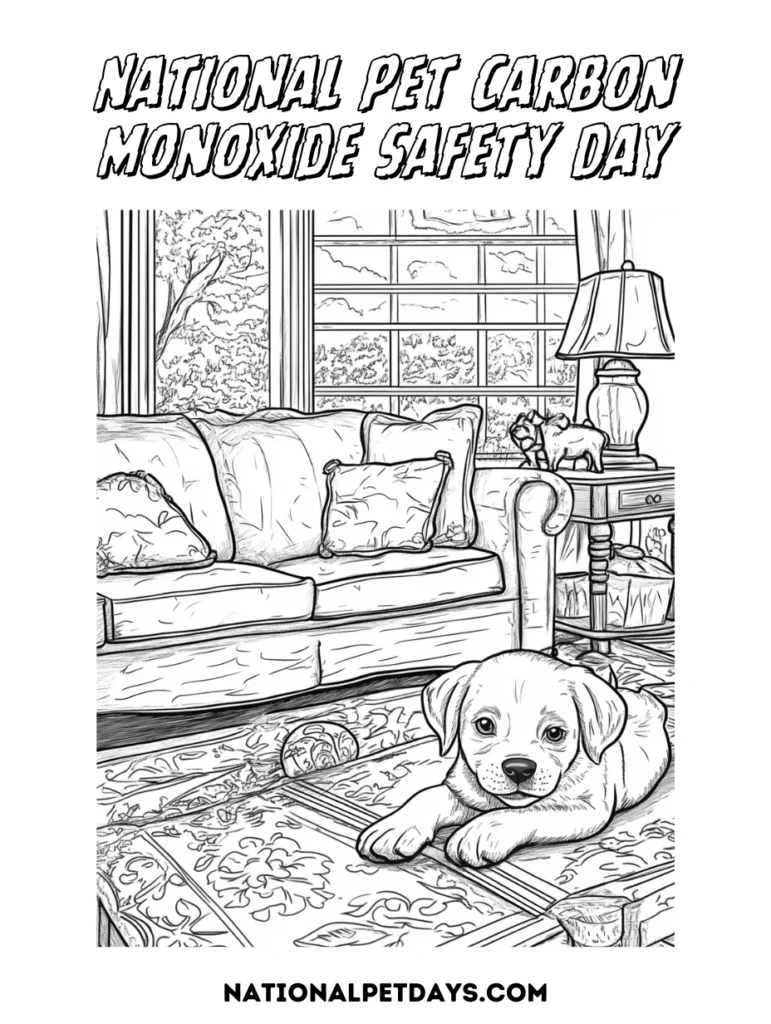By deceiving the senses, carbon monoxide– a colorless, odorless and tasteless gas — has become known by another name: the silent killer. To save our four-legged family members, who can be among the first to feel the effects of the poisonous gas due to their respiratory system and smaller frame, National Pet Carbon Monoxide Safety Day was created.

When is National Pet Carbon Monoxide Safety Day?
Launched in 2020 by Kidde, a manufacturer of such home safety features as carbon monoxide alarms, smoke alarms, and fire extinguishers, National Pet Carbon Monoxide Safety Day is observed annually on September 17th.
Do You Know the Signs of Carbon Monoxide Poisoning in Pets?
Although the following symptoms can also be attributed to other ailments, if your dog or cat is suddenly suffering from any of these conditions they may have become ill due to carbon monoxide poisoning:
- agitated behavior
- blindness
- bright red ears, gums and lips
- coughing
- deafness
- difficulty breathing
- difficulty walking
- dizziness
- drowsiness and/or yawning
- nausea and/or vomiting
- seizures
What Can You Do If Your Pet is Suffering From Carbon Monoxide Poisoning?
Swift action must be taken if you suspect that your dog or cat has been exposed to the deadly gas. Take all members of your family who are in the home away from the immediate danger by going outside for fresh air as you contact your veterinarian for assistance.
What Can You Do To Prevent Carbon Monoxide Poisoning?
According to the carbon monoxide alarm manufacturer Kidde, pet parents can stop a tragedy before it starts by:
- Installing carbon monoxide alarms throughout the home with at least one on every level, as the deadly gas can travel anywhere in a residence, even through drywall.
- Testing the alarms once a week, and remembering to periodically replace the alarm’s batteries. The alarm itself should be replaced after 7 – 10 years, depending on the model.
- Inspecting appliances regularly. As carbon monoxide sources include coal, gasoline, kerosene, natural gas and propane, appliances should be checked periodically to ensure that they are installed properly and are still in good working order. It should also be remembered that generators and grills should never be used indoors, and no fuel-burning appliance should be operated in an enclosed garage, even if the door is open.
- Never exposing a dog or cat to car fumes in an enclosed garage.
